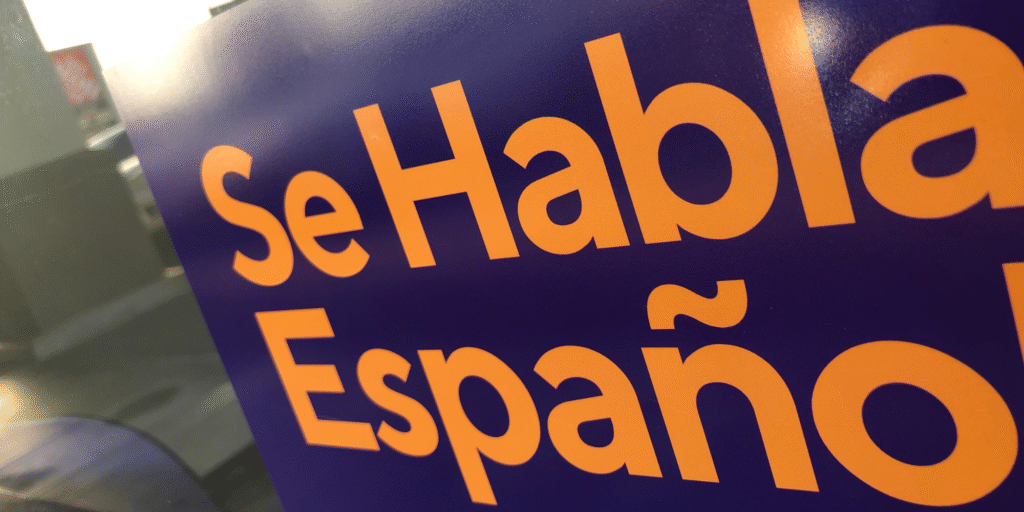If you’re learning Spanish or planning a trip to Spain, textbooks will only get you so far. To really blend in with locals, you need to understand how people actually speak—slang, expressions, and all.
Spanish slang can be funny, cheeky, or even downright confusing. But mastering just a few expressions will make your conversations more natural and, dare we say, cooler.

Two friends talking in Spanish
Here’s a breakdown of the most common Spanish slang phrases—what they mean, how they’re used, and where you’ll hear them the most.
1. ¡Qué guay!
Meaning: How cool! / That’s awesome!
This is Spain’s go-to expression for something exciting, trendy, or fun.
📍Usage: “¿Has visto esa serie nueva? ¡Qué guay!”
(“Have you seen that new series? So cool!”)
2. Flipar
Meaning: To freak out (in amazement or disbelief)
If something surprises you—good or bad—you’ll flipas.
📍Usage: “Flipé cuando me dijo la noticia.”
(“I freaked out when he told me the news.”)
3. Tío / Tía
Meaning: Dude / Girl / Mate
Used for friends, not actual relatives.
📍Usage: “Tío, no vas a creer lo que pasó.”
(“Dude, you won’t believe what happened.”)
4. Vale
Meaning: Okay / Sure / Got it
Spain’s most used filler word. You’ll hear it 50 times a day.
📍Usage: “Nos vemos a las cinco, ¿vale?”
(“See you at five, okay?”)
5. Estoy frito/a
Meaning: I’m exhausted / I’m done for
Literally “I’m fried,” this phrase is used when someone is completely tired.
📍Usage: “He trabajado todo el día. Estoy frito.”
(“I worked all day. I’m fried.”)
6. Ser la caña
Meaning: To be awesome / amazing
A fun way to compliment someone or something!
📍Usage: “Esa canción es la caña.”
(“That song is amazing.”)
7. Estar de mala leche
Meaning: To be in a bad mood
Literally “to be of bad milk”—but emotionally, it means someone’s grumpy.
📍Usage: “Mi jefe está de mala leche hoy.”
(“My boss is in a bad mood today.”)
8. Majo / Maja
Meaning: Nice / Friendly / Lovely
Used to describe someone’s pleasant personality.
📍Usage: “Tu vecina es muy maja.”
(“Your neighbor is very nice.”)

Learn to Speak Spanish
9. Currar
Meaning: To work (colloquial)
Instead of trabajar, you’ll hear people say currar all the time.
📍Usage: “Tengo que currar mañana.”
(“I have to work tomorrow.”)
10. Comerse el coco
Meaning: To overthink / Stress out
Literally “to eat your brain.” Great visual, right?
📍Usage: “No te comas el coco por eso.”
(“Don’t overthink it.”)
Regional Note
Some slang is used across Spain, while others are regional. For instance:
- In Andalusia, you might hear illo instead of tío
- In Madrid, guay and vale are super common
- In Barcelona, locals mix in Catalan slang too!
📚 Related: Essential Travel Spanish Phrases
External Resource
Want to go deeper? Explore SpanishDict’s slang guide for more expressions and audio examples.
Final Thoughts: Speak Like You Belong
Learning slang is more than just sounding cool—it’s about understanding culture, humor, and how people connect. Whether you’re visiting for a weekend or staying long-term, a little slang goes a long way.
📌 Save this guide, practice with a native speaker or language app, and soon you’ll be saying “vale” and “tío” without thinking twice.
🔗 Next up: Read our Beginner’s Guide to Learning Spanish or explore Spanish Customs Every Traveler Should Know to fully blend in.
